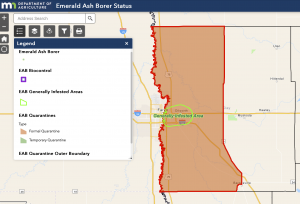The problem with any argument is the will to win. I’d rather use the term “debate,” but outside of rigidly structured academic debates, such a thing rarely exists in the day-to-day world, and instead it results in shouting down the other party. For some topics, this is fine. I don’t care what rational arguments you may use, the Packers are still the best football franchise in history. Yet any political conversation becomes so quickly polarized that it often feels that it isn’t worth the trouble.
Lately, “facts,” something defined as truely measurable, have taken on new meaning. Now facts can be almost anything–feelings, interpretations, forecasts, and worst of all, opinions. The idea of discourse as driven by factual evidence has been seemingly forgotten. Now, our major forms of evidence are the Bible and the United States Constitution.
Without doubt, these are two of the most widely recognized and accepted documents in America. Indeed, together they govern the daily lives of nearly 80% of the United States. Yet our reliance on these documents to back our claims is a serious misstep. Only part of the problem is that they are entirely different works; one is the foundation of our legal system while the other lays out a system of beliefs that is the cornerstone of one of the world’s largest religions. The main problem is that both of them are human documents with wildly varying interpretations.
The Constitution is more than 200 years old, but we actually know quite a bit about its authors. We know their immediate influences; we even have their diaries and letters. As such, we’re treated to a great deal of insight of exactly what they were thinking about at the time. Yet it is still left widely to interpretation. Any student of politics worth their salt can tell you that the history of the Supreme Court is written on the basis of constitutional interpretation, whether it should be interpreted loosely or strictly, as a living document or taken exactly as written.
However, the main problem here seems to be ignorance of the actual text. All too often the Constitution is misquoted, or what is written is ignored (A quick metric that is becoming all too practical: ask yourself whether or not separation of church and state is included in the Constitution). Maybe it’s a problem in education, but all too often the Constitution is used as evidence where it clearly contains no such argument.
Then we have the Bible, one of the most problematic texts today. The Bible is certainly profoundly important; it serves as the moral foundation for most of western civilization. Yet it is so broad that any argument finds refuge in its pages. We know little about its authors and even the newest portions are over one thousand years old. If the Constitution suffers from under-education, the Bible has the opposite problem. It is read daily all over the world, and many quarrels eventually involve some word-for-word excerpt from the Bible.
Yet in this time of entrenched opinion, no argument will ever be decided on the basis of scripture. The text itself is so broad and contradictory that within its pages there is not only an argument for everything, but a counter-argument, and endless discussions of who said what and where. Great religious schisms are founded over how the book is interpreted, or even how important its interpretation is at all. Some take it as guidelines for “loving they neighbor,” but others demand that it be followed to the letter. As such, trying to “out-quote” the Bible to someone will never change his mind. Most will have a different fundamental interpretation of its purpose, and those who follow it similarly may prefer another completely different understanding of what the words convey.
My point is not that these documents shouldn’t be powerfully and deeply meaningful, but that their wide-ranging misuse is made in poor judgment. If you believe the Bible is integral to your life, that is perfectly fine, just don’t use it to disagree and put down others. The Constitution definitely belongs in public debate, but the requirement is that you have to read and understand the actual text before accusing it of what you believe it says.










Be First to Comment